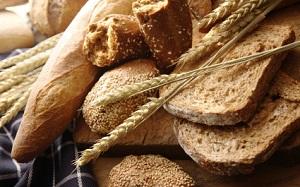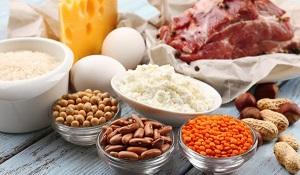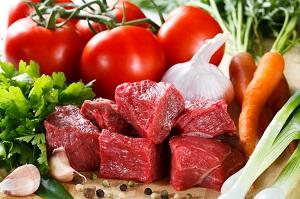There is a lot of traditionally accepted "information" out there when it comes to diet, food, health and nutrition. Unfortunately, much of it is baloney (which, itself, is probably not all that good for you). These established "truths" seem set in stone, so in what follows we present some of the worst to give you a more accurate picture.
"Truth" 1: A Diet that Restricts Fats and Has Plenty of Carbs and Whole Grains is best
You'll probably remember this one from when you were growing up. Despite the fact that there had been no scientific research to validate this theory, it was and still is, viewed as scientific fact. The same applies when it comes to nutritional health supplements, which is why it is essential to do your homework and check out all the details by reading reviews.
In the intervening years since this gem first surfaced, there have been a number of top studies testing this premise. The Women's Health Initiative was one of these, setting itself apart as the biggest study of nutrition there has been. The study proved that this nutrition strategy does not help you lose weight or even protect you against cancer or cardiovascular disease.
What it boils down to: There have now been numerous scientific studies that have tested the value of this kind of diet. The results are in - it is not best for health or weight loss over an extended period.
"Truth" 2: Higher Salt Intake Equals Higher Chance of Hypertension, Strokes and Cardiac Arrest
Again, this came about more as a "common sense" theory than a scientifically proven fact. It is true that curbing your intake of salt can bring down your blood pressure but it has no effect whatsoever on cardiac arrest, strokes or fatalities.
There are, naturally, exceptions - some people suffer from hypertension that fluctuates with their salt intake. But they are the exception rather than the rule. There is no need for every single person to be relegated to eating bland food.
What it boils down to: Curbing your salt intake may lower blood pressure a little but it will not protect you from cardiac arrest or stroke.
"Truth" 3: Grazing is the Best Way to Rev up Your Metabolism
There is one school of thought that suggests that you should eat a number of smaller meals and snacks on a daily basis to rev up your metabolism. Again, this is not based in scientific evidence. Studies have proven that there is no difference in the number of calories burned overall, whether you graze or stick to three meals a day.
Some people may benefit from eating in this manner - it does help to prevent ravenous hunger from developing but it has no impact on the overall caloric usage.
Some studies have actually proven that this diet could do more harm than good, finding that those grazing had higher amounts of dangerous visceral and liver fat, especially if following a diet high in calories. However, there are certain supplements you can take if you are wanting to speed up your metabolism.
What it boils down to: It is untrue that grazing will increase the number of calories used every day. It may even be dangerous - it can encourage the body to store visceral fat.
"Truth" 4: You Need to Cut Out Egg Yolks Because of Their Cholesterol Content
For years now, people have been cutting out the most nutritious part of the egg - the yolk - because of its cholesterol content. For most people, however, cholesterol ingested from eggs (or other sources for that matter) has a negligible effect on levels of blood cholesterol. The fact is that eggs actually elevate levels of good cholesterol in the body and do not increase the incidence of cardiac disease.
A massive review was undertaken to collate the results of 17 studies, encompassing data gathered from over 260,000 subjects. This review concluded that those people who were non-diabetic could eat eggs without raising their risk of cardiac arrest or stroke at all. There have been studies that did conclude that this was not the case with diabetics. If a person suffers from diabetes, eating eggs can increase their chances of having a cardiac arrest.
Contrary to popular wisdom, eggs are one of nature's super foods and the yolk is the most nutritious part of the egg. Advising people not to eat yolks could count as one of the ludicrous tips in the history of nutritional science.
What it boils down to: Eggs have no discernable effect on your levels of cholesterol and will not increase the risk of heart disease in most of the population.
"Truth" 5: You have to Eat Whole Wheat for Great Health
Before the days of genetically modified crops, i.e. before the 1960s, this was true. Nowadays, wheat has a very different makeup compared to its earlier forms. This genetically modified wheat could even increase the bad cholesterol in the blood and also lead to an increased inflammatory response in the body. For many, the body does not react well to this new wheat and some experience pain, fatigue, bloating and a feeling of lethargy after eating it, especially if they suffer from irritable bowel syndrome.
The older wheat varieties such as Kamut and Einkorn are, in fact, pretty nutritious. The new wheat is what should be avoided.
Current labeling laws have also turned the label "whole grain" into something of a laughable misnomer. Generally even "whole grain" products are made from grains that are so finely crushed that they have the same basic effect on the metabolism as their refined counterparts.
What it boils down to: Most of us are eating wheat that really is not good for us. It could even cause painful inflammation and raised levels of cholesterol.
"Truth" 6: Saturated Fat is Dangerous - It Increases Bad Cholesterol and the Risk of Cardiac Arrest
For years it has been drummed into us that saturated fat should be avoided because it can increase the levels of bad cholesterol and that it damages the cardiovascular system. This has been the cornerstone of much of present-day nutritional strategies. However, when you turn to the evidence collated from numerous studies, it turns out that this is another myth.
Saturated fats do raise your cholesterol levels - but not in a bad way. The HDL levels do increase but that's the good cholesterol; and the LDL cholesterol is converted into a harmless state. The key is moderation - eating saturated fat is good for you, as long as you do not overdo it.
What it boils down to: Up to date research proves that cutting out saturated fat may even be unhealthy.
Truth 7: Coffee is Bad for You
Coffee has been getting a bad rap for a long time because of the amount of caffeine in it. Science has now shown that, despite the caffeine, coffee has a number of benefits when it comes to wellbeing.
One school of thought is that coffee is the most utilized antioxidant source in the modern diet - outstripping the totals gained from veggies and fruit together.
People who regularly drink coffee score on a number of levels: they have a reduced risk of depression, less chance of developing diabetes or several other diseases associated with aging. Coffee drinkers even seem to come out on tops in terms of longevity.
What it boils down to: Coffee's bad rep is not deserved. It contains many antioxidants. Those that have a regular cup of coffee outlive those that don't and also enjoy better wellbeing.
"Truth" 8: Fat Through the Lips Leads to Fat on the Hips
Fat is what fills out our shape. The above "truth" seems to make sense at every level. The truth is, though, that not eating enough fat can also cause weight gain. If you follow conventional wisdom and eat a diet high in carbs and low in fats, you are not going to be able to maintain your weight loss. Studies have shown that those who restrict their carb intake and have a high-fat diet, still lose more weight than those who follow a diet restricting fat intake.
What it boils down to: If you want to lose weight, restrict the carb intake, not the fats.
"Truth" 9: Extra Protein Puts Pressure on the Kidneys and Ups Renal Failure Risk
Conventional wisdom holds that a high protein diet puts undue pressure on the kidneys and increases the chances of renal failure. This is not true unless you already have renal disease. There are a number of studies that have shown that there is no correlation between renal disease and even abnormally high protein diets.
A higher protein diet has a number of benefits: lower blood pressure and a reduced chance of diabetes. (These are both considered risk factors for renal failure). It is also good for keeping you feeling fuller for longer and helps you to lose weight - important in the fight against kidney disease.
What it boils down to: A healthy person will not have experience adverse effects on the kidneys when eating a high-protein diet and will actually benefit quite a bit.
"Truth" 10: Full-Cream Dairy is Bad Due To Fat and Increases Risk of Obesity and Cardiac Disease
Full-cream dairy is one of the most abundant dietary sources of saturated fat and has a high caloric count, which is why we have been advised to stick to products low in fat. But science has now proved this to be a mistake. Eating full-fat dairy has not been connected to a higher chance of developing cardiac disease and has been proven to reduce the incidence of obesity.
In those areas where cows still eat grass, full-cream dairy becomes a health boon - the chances of developing heart disease in these areas are reduced by about 70%.
The benefits are derived from the fat in the dairy. That is why low fat is a bad choice overall. On the other hand, you do not need to go around loading your coffee with cream and drenching everything in butter. A moderate intake, however, is not only safe but also good for you.
What it boils down to: Even with the high-calorie count, full cream dairy is still better for weight loss. Grass fed, full-fat dairy is also related to a lower risk of cardiac disease.
"Truth" 11: It Makes no Difference Where Your Calories Come From, They are All the Same
This seems to make sense but is simply nonsense. Food is processed by the body according to type. The type of food will determine whether or not it increases the fat burning effects in the body and the effect on the appetite-regulating hormones. A diet high in protein, for instance, will rev up the metabolism by around 100 calories daily and will help to regulate appetite. One study centered on a group of people whose only dietary adjustment was to add more protein. They lost almost a pound a week, without making any other adjustments.
There are tons more examples we can draw on - different foods have different effects on your body. A calorie is not a calorie is not a calorie, so to speak..
What it boils down to: Different foods are processed by the body differently and thus have different effects. Where the calorie comes from does count, especially when you are trying to lose weight.
"Truth" 12: Foods that are Classified as Low-Fat Are Better: They Have Fewer Calories and Less Saturated Fat
Low-fat quickly became a great marketing concept when the "healthy eating" guidelines were first published.
However, food manufacturing companies soon encountered a problem when it turned out such foods didn't taste very good. To improve the flavor they added huge helpings of sugar. The sad reality is that this sugar is actually very bad for you. Taking out the saturated fat makes these foods diet no-no's.
What it boils down to: The so-called diet foods are highly processed and are likely to have a lot of sugar in them. They are generally not good for you.
"Truth" 13: Increased Red Meat Intake Increases Risk of Lifestyle Diseases
Conventional wisdom suggests limiting the intake of red meat to no more than once a week. There are some studies that seem to back this up - until you take a closer look. In most of these studies, no distinction was drawn between meat that had been processed and meat that had not.
Massive studies - one encompassing more than a million participants and the other with about half that, have shown there is no increased risk of lifestyle diseases with regular consumption of red meat, as long as it is unprocessed. There have also been a couple of review studies that have proven that the "scientific" link between red meat and cancer (in particular, colorectal cancer) is a lot shakier than conventional wisdom dictates. In fact, it simply doesn't exist in women and is a very weak link when it comes to men. At the very least, this "link" has yet to be proven in isolation from accompanying behavioral factors such as smoking, exercise, sugar intake, alcohol consumption, etc.
The trick is to make sure that the meat is unprocessed and to ensure that you do not char it when cooking - that can be dangerous.
What it boils down to: It is pure myth that unprocessed red meat is dangerous for you. There is a very tenuous link to it and cancer in men.
"Truth" 14: Gluten-Free Diets Should Only be Followed by Those Who Have Celiac Disease
There is a school of thought that states that the only people who actually benefit from cutting out gluten are those people who have celiac disease. Less than 1% of people actually suffer from this disease and it is basically a very bad form of gluten intolerance. Gluten sensitivity is, however, much more common and could affect some 8% of the population. The problem is that it is harder to diagnose so accurate stats are not available as yet.
Scientists have shown that a gluten-free eating plan can be instrumental in the reduction of symptoms of IBS, autism and several other conditions. The rub is that you need to eat good food that has no gluten in it naturally - such as meat and veggies. Processed gluten-free products are not advised.
It also needs to be remembered that the whole issue of gluten is pretty complex and there are no hard and fast rules here. Some of the newer studies have posited that it may not be the gluten in the wheat that causes problems but a different compound altogether.
What it boils down to: Science shows that a gluten-free eating plan has benefits not only for those suffering from celiac disease.
"Truth" 15: You Need to Be Determined to Lose Weight
The basic theory when it comes to weight loss is that you need to achieve a calorie deficit in order to lose weight. Those who are unable to do so are told that they lack the willpower.
Wrong again.
The body should be viewed as a sophisticated, self-regulating system. Your body will make the final decision about what you do and do not eat. We all know by now that there are a number of factors that affect weight - from genetics to hormones. It is also a documented fact that junk food is very addictive - sometimes people simply need to get their "fix" - which means that willpower would have a lot to overcome in such cases. The individual cannot, of course, abdicate all responsibility here but the general theory that the failing dieter is also a moral failure is quite damaging.
What it boils down to: Weight gain is not a result of having a weak will or poor self-control. It is a lot more complex than that.
"Truth" 16: We Need to Get Rid of Bad Fats - Trans Fats and Saturated Fats are all the Same
It is quite common to see trans fats and saturated fats jumbled together under the heading of "bad fats". In the case of trans fats it's true. They increase your chances of developing lifestyle diseases and damage your metabolic processes as well. Saturated fat, on the other hand, is totally different and is actually healthy for you.
The people advocating that the two are the same are also the ones who suggest we stick to vegetable-based oils such as canola. The problem is that these so-called healthy oils have been proven to contain a concentration of around 0.56-4.2% dangerous trans fats.
What it boils down to: Most conventional wisdom paints trans fats and saturated fats with the same brush. This is not only unwise but harmful to health. Trans fats are the bad fats to avoid.
"Truth" 17: Protein Causes Calcium to be Drawn from Bones and Increases Osteoporosis Risk
Conventional understanding says that ingestion of excessive amounts of protein causes high levels of blood acidity and a consequent seeping of calcium from of the bones causing osteoporosis. This is true initially but this effect tails off as the body gets used to the protein intake. High levels of protein can actually substantially reduce the chances of you developing osteoporosis.
This is a great example of how just following normal guidelines without researching them will cause the problem it was intended to address.
What it boils down to: There are a number of studies that prove that conventional wisdom has gotten this very wrong; eating more protein helps stave off osteoporosis.
"Truth" 18: Diets that Restrict Carb Intake are Harmful and Increase the Risk of Cardiovascular Problems
Low-carb diets are not a new thing. For years conventional dieticians have been decrying these diets, that they will lead to plaque in the arteries. However, in the last decade or so, there have been numerous studies that have centered on restricted carb intake.
They have found that these diets enabled participants to lose more weight and that they were actually more healthy when it came to the cardiovascular system.
Slowly, conventional wisdom is changing its tune but there are still many opponents to low carb diets, despite their effectiveness having been debunked. Naturally, everyone will have to go with what suits them but the studies have come out largely in favor of restricting carbs if you want long-term health benefits and weight loss.
What it boils down to: New research has been showing that low carb diets are actually more beneficial than the traditional low-fat diets.
"Truth" 19: Sugar is Bad Because it Has "Empty Calories"
Just about everyone will concur that high amounts of sugar intake is bad. The problem is that not everyone understands why. Sugar is bad, not because it is high in calories, but because of its effect on the metabolic system. Sugar is one of the leading factors connected with lifestyle diseases and may be one of the deadliest substances on earth when consumed in excess. Small amounts are no problem, but most of us tend to eat far too much as it is, especially as an additive in processed foods.
What it boils down to: A little sugar is ok.
Truth 20: Vegetable and Seed Based Oils Help Reduce Cholesterol and Are Best For Health
The truth is that these oils have high levels of polyunsaturated fats and also Omega-6 fats. While these do reduce cholesterol in the blood stream, what we forget is that high cholesterol is not actually a disease in its own right - it is simply a risk factor.
So decreasing the risk factor doesn't mean that you are sorting out the end result - you could still have a heart attack.
Many studies have actually proven that these oils increase the chances of death from cardiac arrest or cancer, despite lowering cholesterol. Mainstream medicine, however, still insists that we use these products. What they do not understand is that by eating increased levels of processed foods, we are making ourselves unhealthy and obese.
What it boils down to: Vegetable and seed-based oils are not as healthy as their proponents would like you to think.






















